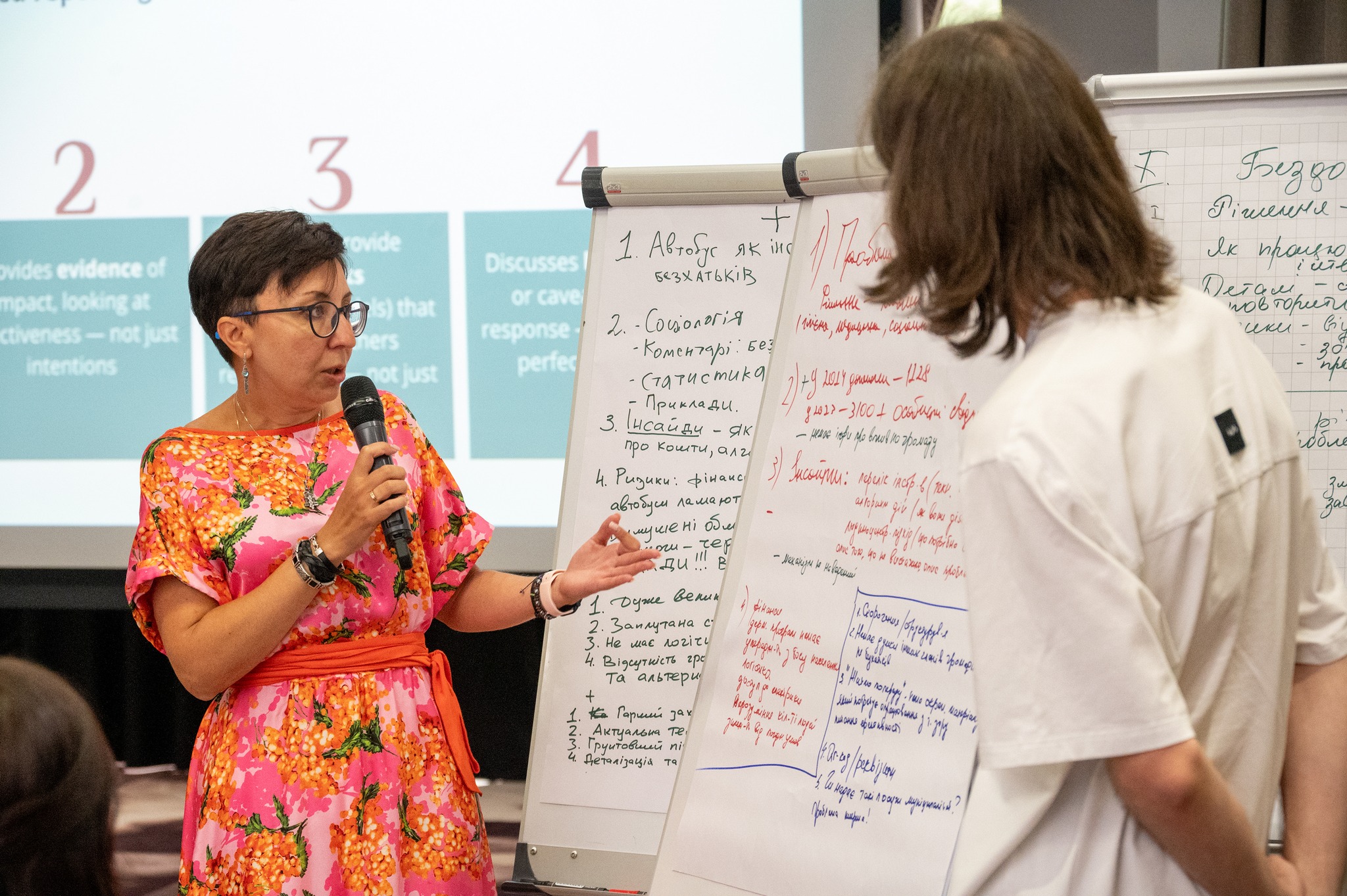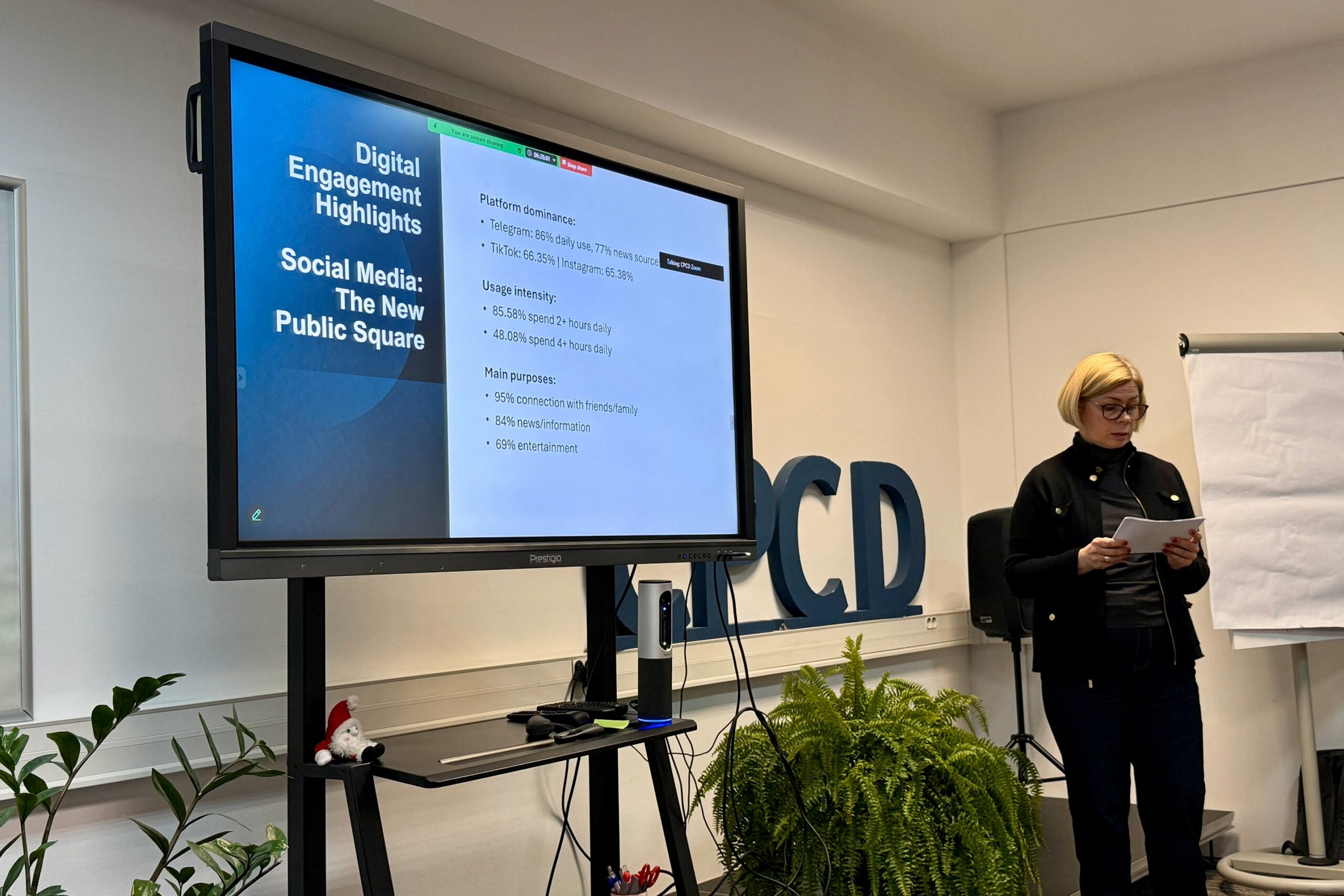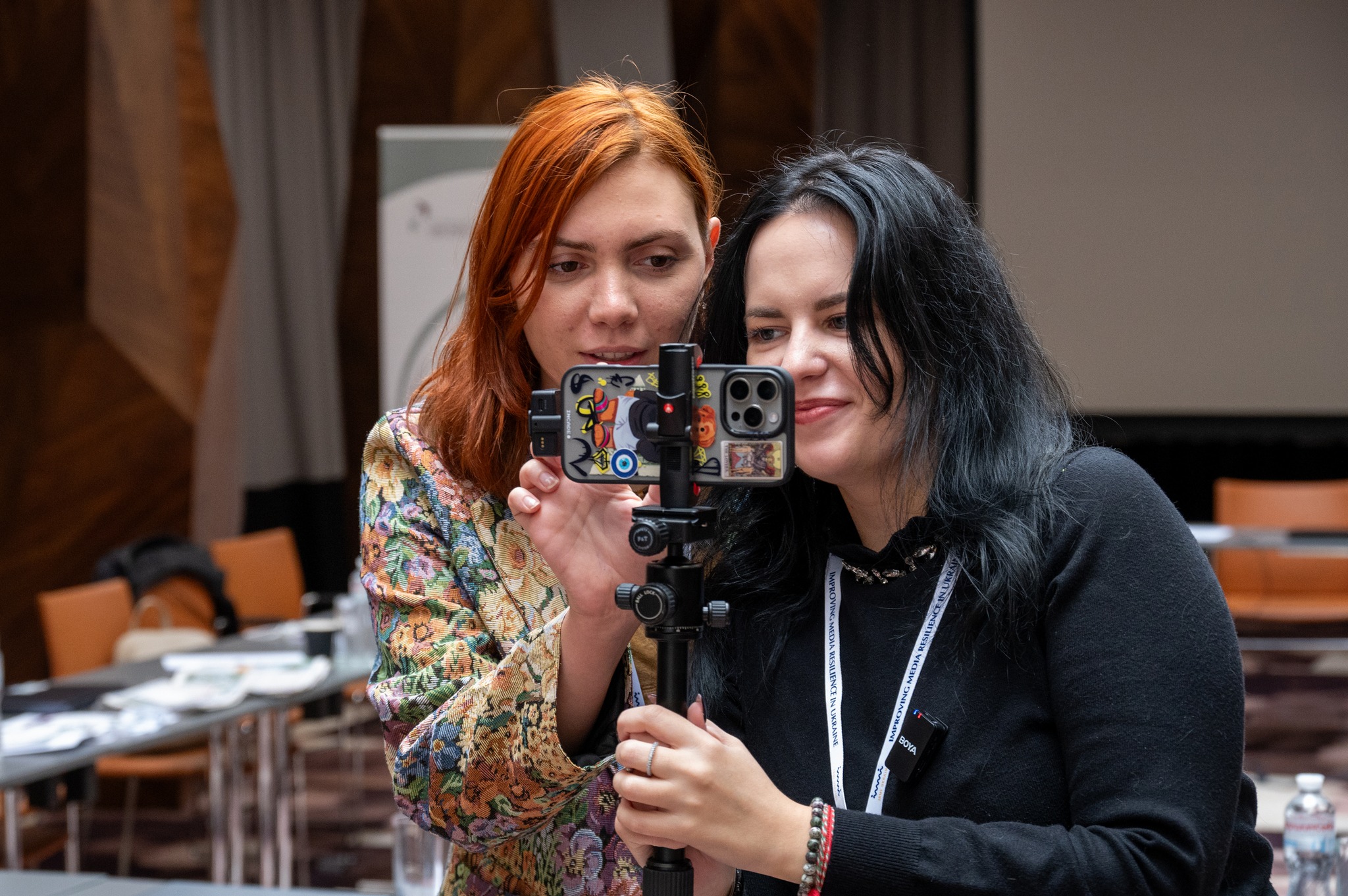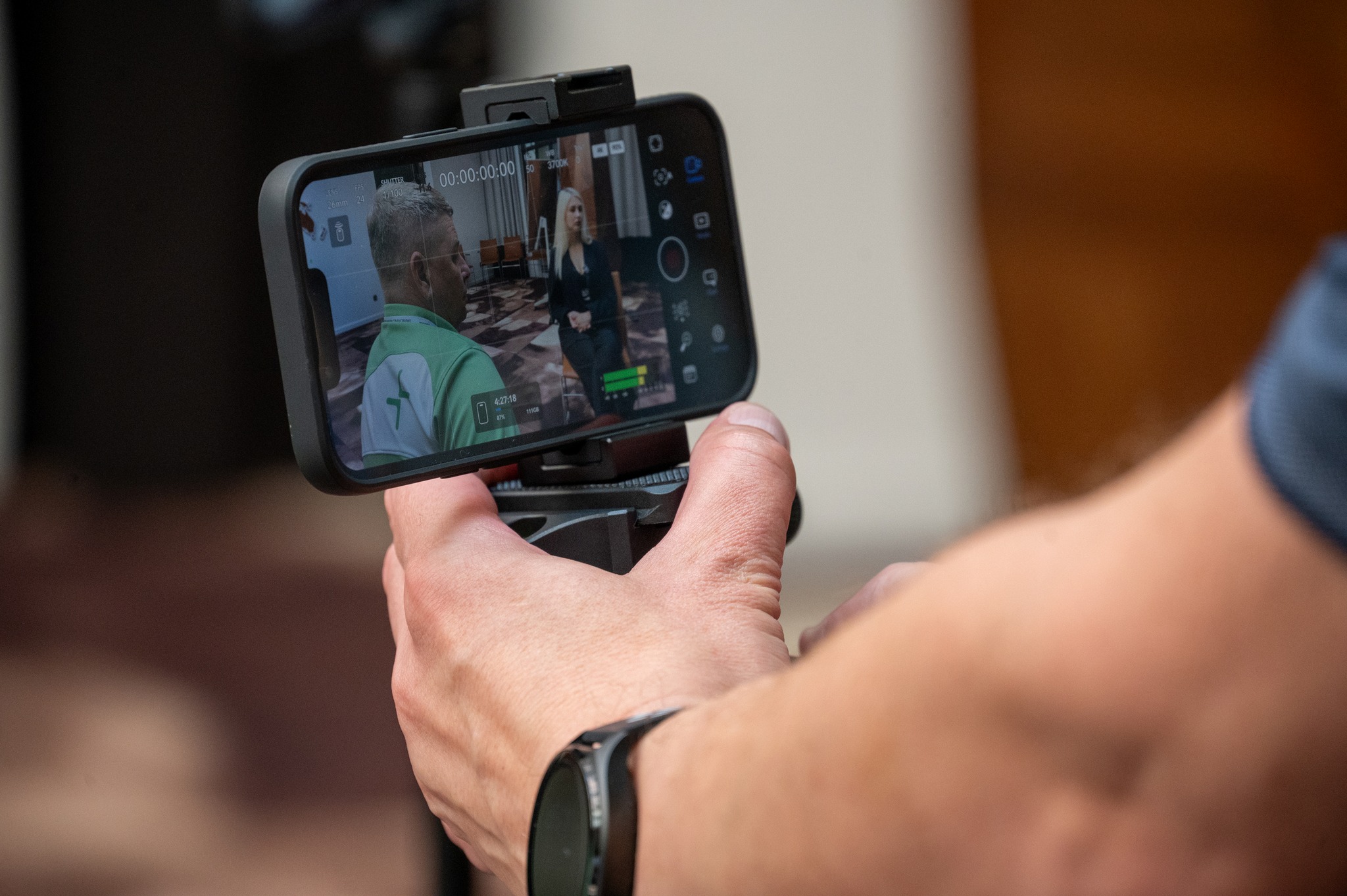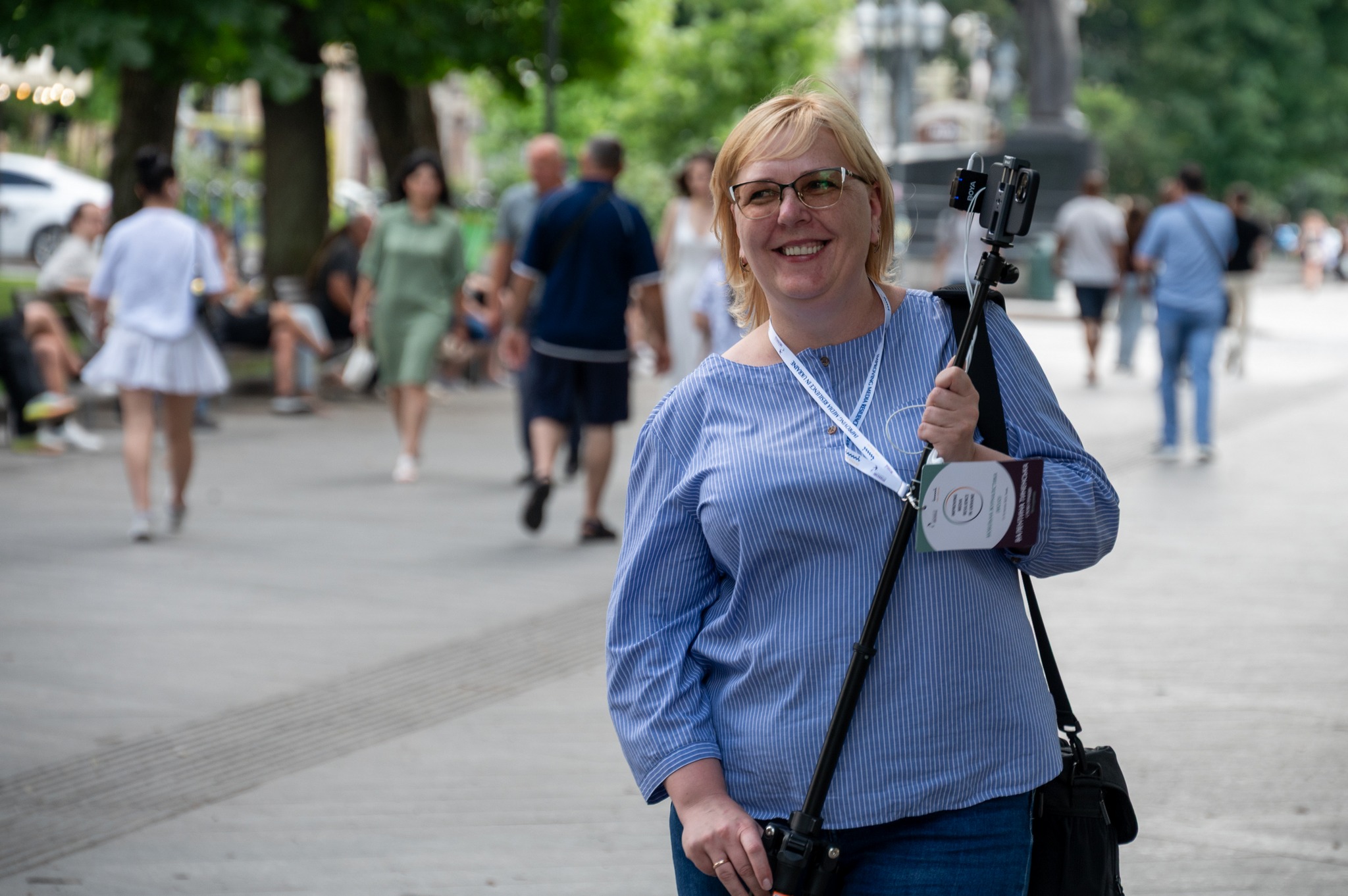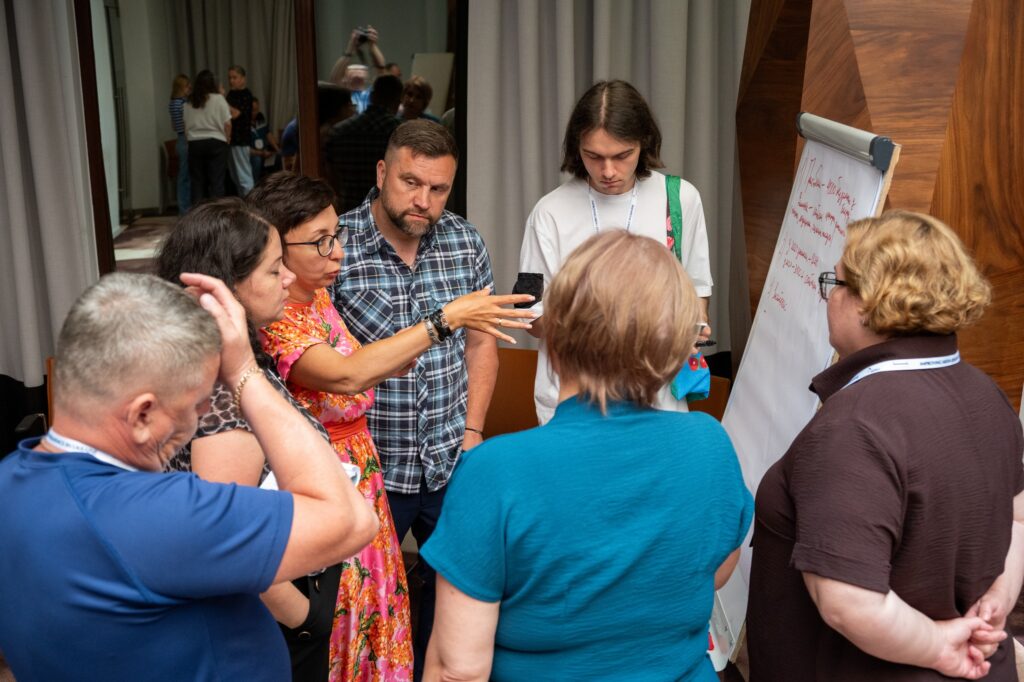
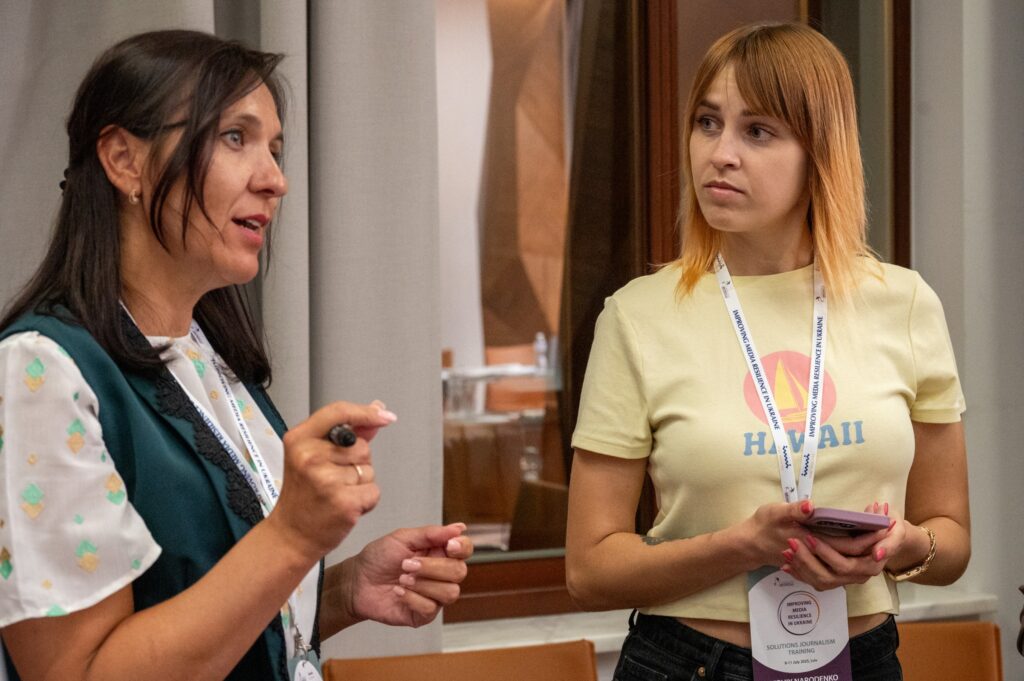
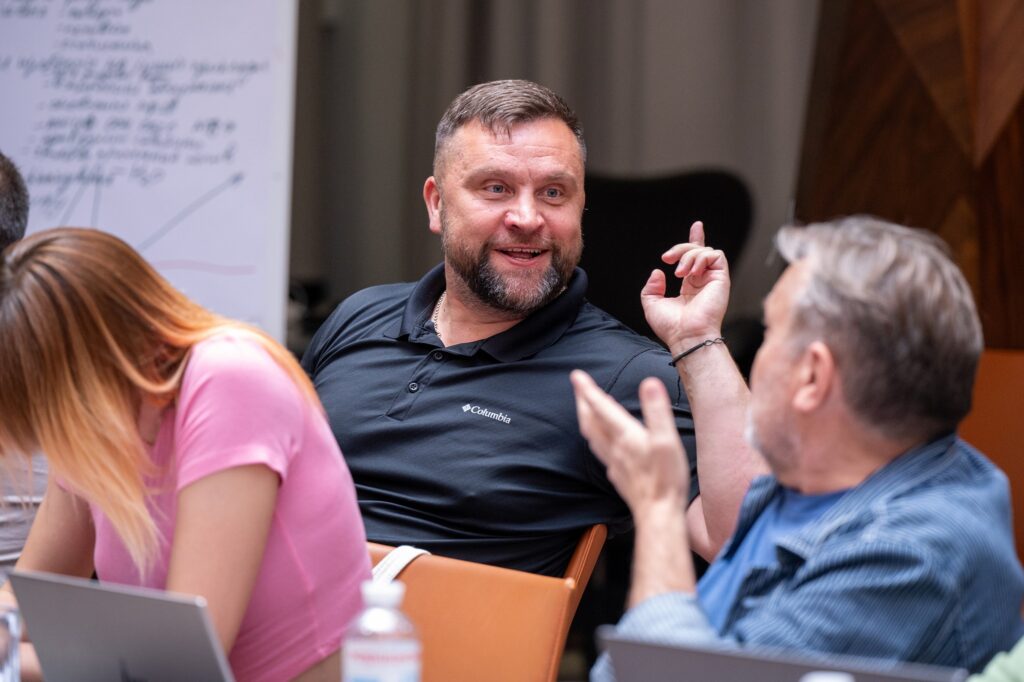
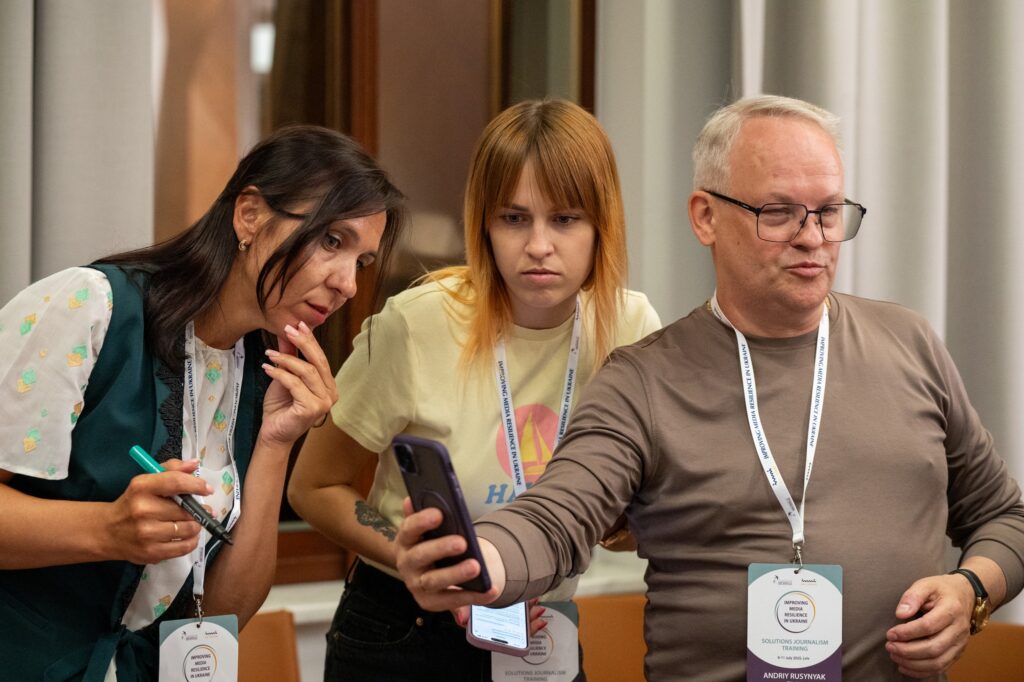
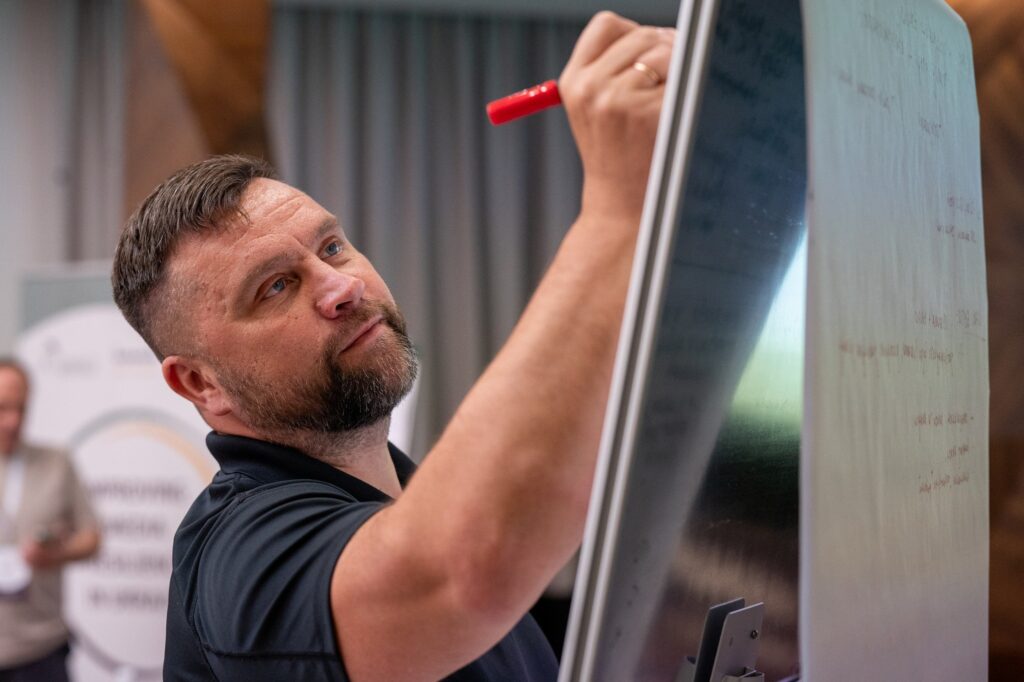
This week in Lviv, eighteen regional and hyperlocal media editors are exploring solutions journalism (SoJo) as part of the Improving Media Resilience in Ukraine Project.
Why solutions journalism? IRMI research confirms what other media studies show: audiences are abandoning negative news for stories that offer practical solutions. With the project focusing on social cohesion, reconstruction and rebuilding, participants are learning tools to build media trust, tackle community problems and offer genuine pathways forward. SoJo shows that the journey matters as much as the destination. It’s about engaging communities, motivating action and fighting disinformation.
Participants examined SoJo principles and how they differ from constructive journalism. Working groups analysed international examples, debated formats and tools, and attended the premiere of “Pages of Hope” – a film about frontline publications including Trudova Slava and editor Svitlana Karpenko.
Key questions emerged: What links investigative journalism and SoJo? What challenges face Ukrainian media practising solutions journalism? How can outlets engage audiences and identify topics suited to this approach? Trainer Minal Thakur (Transitions Online, Czech Republic) delivered practical exercises alongside methodology, demonstrating how to transform problem-focused stories into solutions journalism.
Nazariy Vivcharyk, Procherk: “Perfect blend of theory and practice. Analysing colleagues’ work – what’s missing, how to restructure – was invaluable. Surveys combined with text produce brilliant results. And the topics were refreshingly diverse – not just war, but women reviving traditional crafts.”
Vladyslav Lesyk, Rubryka: “This sharpened my solutions journalism skills. The key: focus on insights and challenges. Include multiple voices, avoid idealising solutions. Show communities several paths forward.”
Pavlo Sukharev, TRK Nadiya: “Solutions journalism puts problems, not people, at the centre. The four pillars structure content effectively for 2-4 minute pieces. Covering limitations, risks and community impact is crucial. Even failed initiatives teach valuable lessons – they’re warnings about risks and pitfalls.”
Minal Thakur, trainer: “Solutions journalism works locally as well as globally. It builds audience engagement, strengthens community bonds and restores trust. These local and hyperlocal outlets need this powerful tool now more than ever. When people feel overwhelmed by negative news, solutions journalism offers hope, inspiration and energy – keeping them engaged.”
The training is part of the Improving Media Resilience in Ukraine Project, implemented by Fondation Hirondelle (Switzerland) and IRMI, Institute for Regional Media and Information (Ukraine). Funded by Swiss Solidarity.


